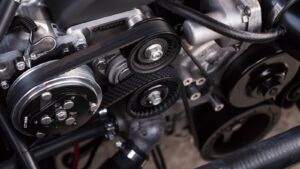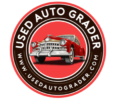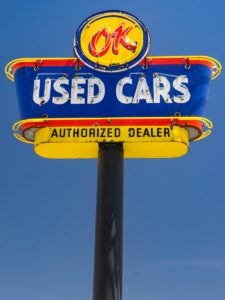It is important to thoroughly inspect a used car before buying it . Here are the key parts of the car that should be checked:
. Here are the key parts of the car that should be checked:
- Engine: Check for any oil leaks, coolant leaks, or signs of damage to the engine block. Look for any signs of poor maintenance, such as dirty oil or a worn-out timing belt. Check the oil level and condition, as well as the condition of the air filter.
- Transmission: Test drive the car to check for any unusual noises, vibrations, or hesitation when shifting gears. Check the transmission fluid level and condition, and inspect the clutch if the car has a manual transmission.
- Suspension: Inspect the shock absorbers, struts, and springs for wear and damage. Check for any signs of uneven tire wear, which could indicate an alignment or suspension issue.
- Brakes: Check the brake pads and rotors for wear and damage, and inspect the brake lines and hoses for leaks or damage.
- Steering: Test drive the car to check for any looseness or play in the steering, which could indicate a worn-out steering rack or tie rods.
- Electrical system: Check the battery, alternator, and starter for proper operation, and inspect the wiring for any signs of damage or corrosion.
- Exhaust system: Inspect the exhaust pipes, muffler, and catalytic converter for damage or rust.
- Body and interior: Check for any signs of previous accidents or rust, and inspect the upholstery, carpet, and dashboard for wear and tear.

